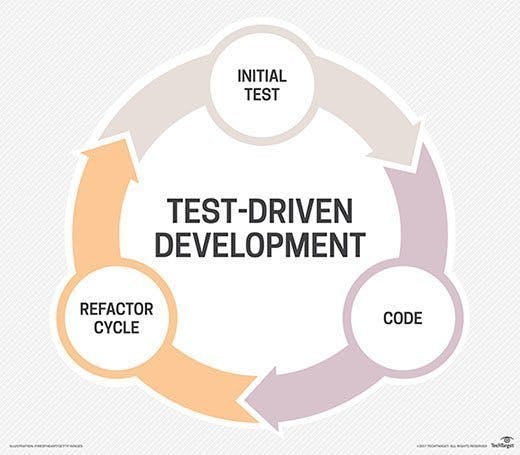Test-Driven Development in Java: Ensuring Quality Code
Mastering the Art of Software Excellence
Introduction
In the realm of Java programming, ensuring the quality of code is paramount for success. Test-Driven Development (TDD) stands out as a robust methodology to achieve this goal. By incorporating rigorous testing throughout the development cycle, TDD not only guarantees code quality but also enhances productivity and reduces bugs. This comprehensive guide delves into the intricacies of Test-Driven Development in Java, elucidating its significance, benefits, implementation strategies, and more.

Understanding Test-Driven Development
Test-Driven Development, commonly known as TDD, is a software development process that prioritises writing tests before writing functional code. The process typically involves three steps: writing a test that fails, writing the simplest code to pass the test, and finally refactoring the code for better design while ensuring all tests still pass.
TDD fosters a disciplined approach to development, encouraging developers to think critically about the expected behaviour of their code and to address potential edge cases from the outset.
The Test-Driven Development Workflow
Writing Test Cases: In TDD, developers begin by crafting test cases that outline the desired behaviour of the code.
Implementing Functional Code: Once the test cases are in place, developers proceed to write the minimum amount of code necessary to pass those tests.
Refactoring: After the code passes the tests, developers refactor it to improve readability, performance, and maintainability without altering its external behaviour.
Benefits of Test-Driven Development in Java
Improved Code Quality: By focusing on writing tests upfront, TDD encourages developers to produce cleaner, more reliable code.
Faster Feedback Loop: TDD provides instant feedback on the code's correctness, enabling developers to detect and fix errors early in the development cycle.
Enhanced Documentation: Test cases serve as living documentation, elucidating the intended behaviour of the codebase for future reference.
Implementing Test-Driven Development in Java
Setting Up Testing Frameworks: Choose a robust testing framework such as JUnit or TestNG to facilitate automated testing in Java projects.
Defining Test Scenarios: Identify various scenarios and edge cases to ensure comprehensive test coverage.
Writing Test Cases: Craft test cases that cover each aspect of the code's functionality, including both normal and exceptional scenarios.
Running Tests Automatically: Integrate testing into the continuous integration (CI) pipeline to automate test execution and ensure consistency.
Best Practices for Effective Test-Driven Development

Keep Tests Simple and Focused: Write small, focused tests that verify specific units of functionality.
Refactor Regularly: Continuously refactor code to maintain cleanliness and prevent technical debt accumulation.
Maintain a Balance: Strike a balance between writing tests and writing functional code to avoid over-testing or under-testing.
Common Challenges in Test-Driven Development
Resistance to Change: Developers may initially resist adopting TDD due to its paradigm shift from traditional development approaches.
Overhead in Initial Setup: Setting up the testing infrastructure and writing initial test cases can incur overhead in the early stages of development.
Test Maintenance: As the codebase evolves, maintaining and updating existing tests to align with changes can be challenging.
Conclusion
Test-Driven Development in Java offers a systematic approach to ensuring code quality, fostering a culture of excellence and reliability in software development. By embracing TDD principles and best practices, developers can streamline their workflow, minimise defects, and deliver high-quality code that meets the demands of modern software development. Moreover, individuals seeking to enhance their Java skills can explore comprehensive Java course in Faridabad, Greater Noida, Delhi, and other cities across India. These courses provide in-depth training on Java programming concepts, including Test-Driven Development, equipping participants with the knowledge and skills necessary to excel in the dynamic field of software development.